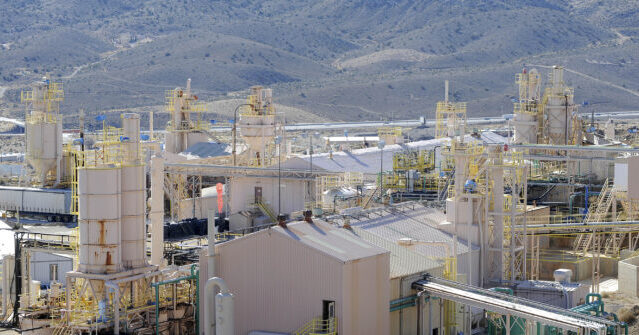The Trump administration is deepening its effort to sever U.S. reliance on Chinese rare earth supplies, committing $400 million in equity financing to MP Materials Corp. as part of a broader plan to expand domestic production of rare earth magnets used in advanced weapons systems and industrial technologies.
The Department of Defense will acquire a newly issued class of preferred stock in MP Materials, convertible into common shares, along with warrants to purchase additional equity. Following the transaction, which is expected to close Friday, the Pentagon will become the company’s largest shareholder, with a potential stake of about 15%, according to MP Materials.
The deal also includes a 10-year commitment by the U.S. government to support pricing and demand for domestically produced rare earth magnets. The Defense Department has guaranteed the purchase of 100 percent of the output from a planned magnet manufacturing facility—dubbed the “10X” plant—at a minimum price of $110 per kilogram for neodymium-praseodymium (NdPr), a key rare earth alloy used in missile guidance systems, fighter jets, and electric motors.
Shares of MP Materials soared nearly 50 percent in premarket trading Thursday after the announcement.
“This initiative marks a decisive action by the Trump administration to accelerate American supply chain independence,” said MP Materials CEO James Litinsky.
MP Materials owns and operates the only active rare earth mine in the U.S., located at Mountain Pass, California. The company said it will use the proceeds from the Pentagon investment, along with a $1 billion financing package arranged by JPMorgan Chase and Goldman Sachs, to build its second magnet production facility and expand processing capabilities.
The 10X facility, which has yet to be sited, is expected to begin commissioning in 2028 and will add 10,000 metric tons of annual magnet output to U.S. capacity. An additional $150 million loan from the Defense Department will fund expanded heavy rare earth separation at Mountain Pass.
The U.S. imported roughly 70 percent of its rare earths from China in 2023, according to the U.S. Geological Survey. The push to reshore the supply chain gained urgency during the trade war launched by President Trump, when Beijing threatened to restrict rare earth exports.
Interior Secretary Doug Burgum said in April that the administration was evaluating direct equity investments in critical mineral firms as part of a strategy to build industrial resilience and reduce economic exposure to strategic rivals.
Read the full article here
